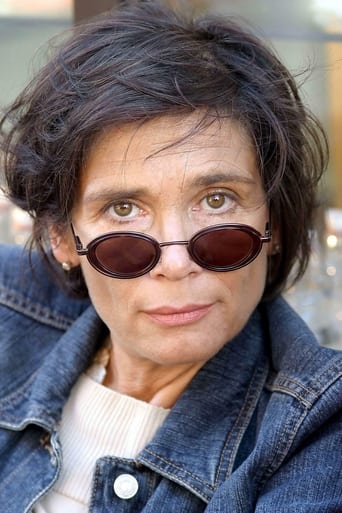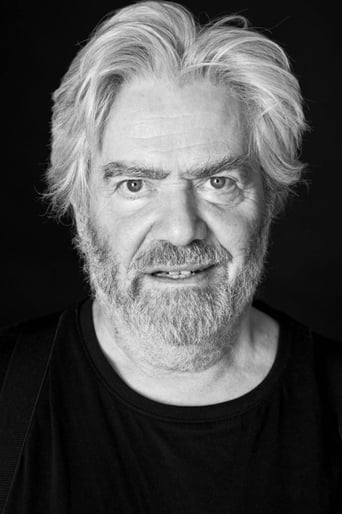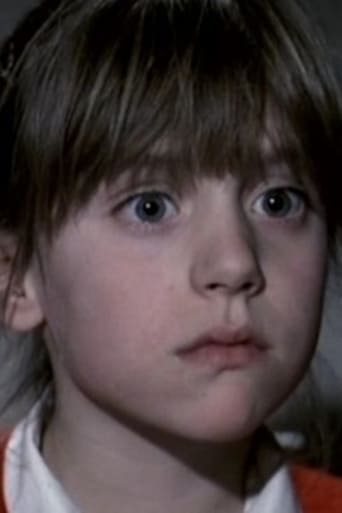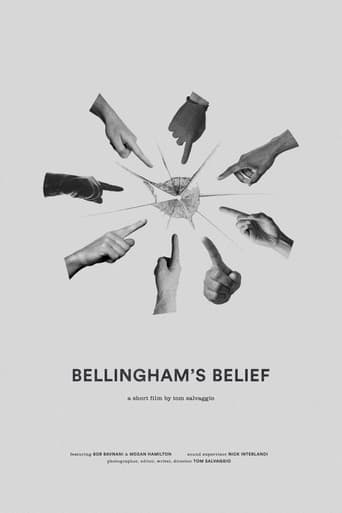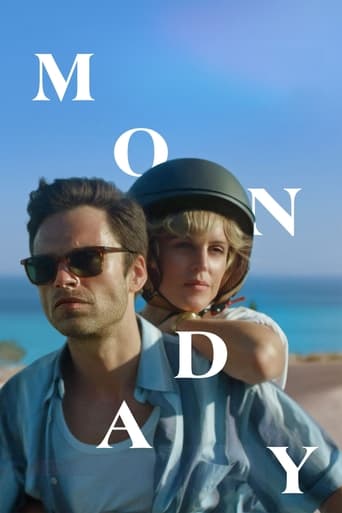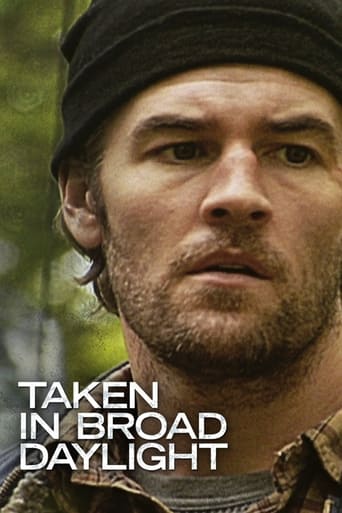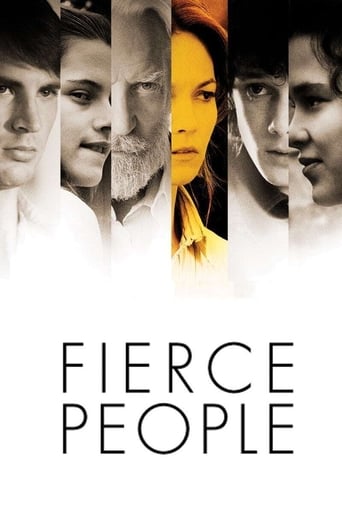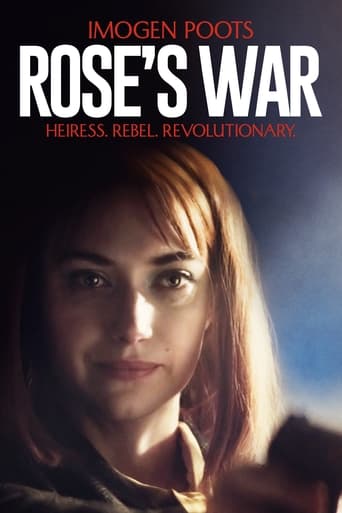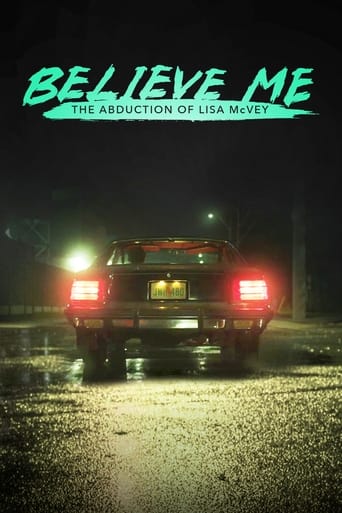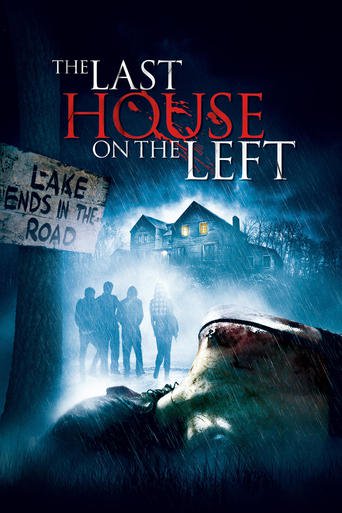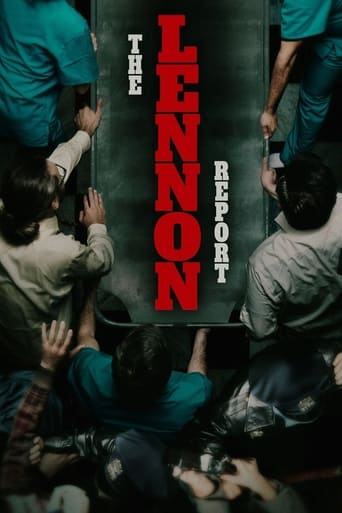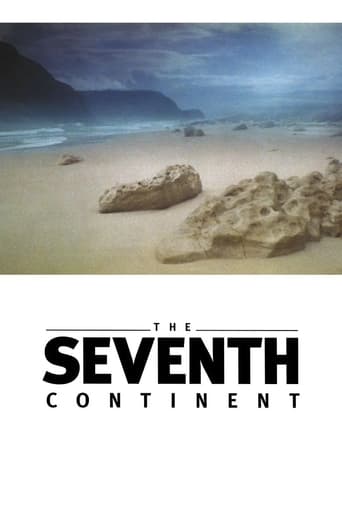
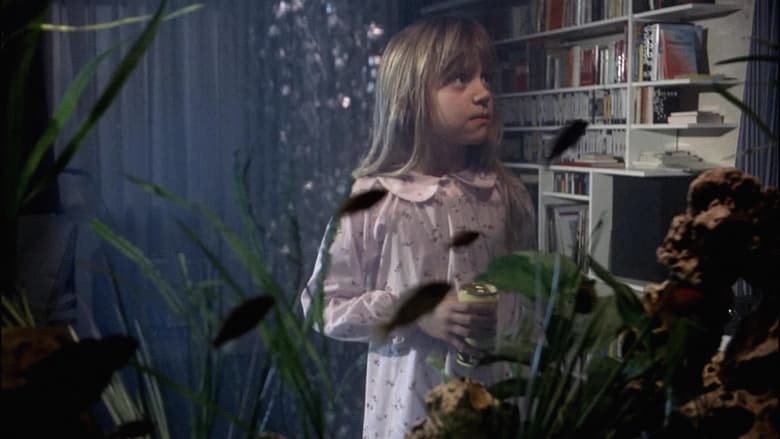
The Seventh Continent (1989)
Chronicles three years of a middle class family seemingly caught up in their daily routines, only troubled by minor incidents. Behind their apparent calm and repetitive existence however, they are actually planning something sinister.
Watch Trailer
Cast


Similar titles
Reviews
How sad is this?
The movie's neither hopeful in contrived ways, nor hopeless in different contrived ways. Somehow it manages to be wonderful
There are moments in this movie where the great movie it could've been peek out... They're fleeting, here, but they're worth savoring, and they happen often enough to make it worth your while.
The film may be flawed, but its message is not.
From my introduction to Michael Haneke through his 1997 film, Funny Games, I knew he shared an important quality with one of my favorite filmmakers. Like David Lynch, Michael Haneke doesn't care if the audience is comfortable while watching his films. Haneke extends his scenes past the point where the audience watching thinks is necessary, creating a hypnotic trance that one is unable to look away from. This ability of Haneke's to espouse the audience's attention forces the viewer to become an active participant in his films and thrusts us into an often much-needed self-examination. Haneke's feature film debut, The Seventh Continent takes an in-depth look at the lives of a family chained by the shackles of their expected existence willing to go to extreme measures to escape the monotonous confines of their daily existence.The long takes Haneke favors throughout The Seventh Continent, introduce the audience to a young family living in Europe that live in precisely the way that is expected of them. Georg Schober (Dieter Berner) works diligently at his career, always placing himself in the best possible position to advance through promotions and better situate himself in his profession. Anna Schober (Birgit Doll), an optometrist, steadfastly maintains her family's home, dutifully completing all the tasks and errands to keep the everyday lives of her family running. Anna is also reacting to the death of a parent, which has devastated her brother, assuming the role of the strong focused sibling taxed with the burden of maintaining her parents' business. The youngest member of the family, Evi, fills her time coloring pictures, doing her homework, and occasionally causing mischief at school by feigning blindness. Neither Georg's career advancements, Anna's mourning, nor Evi's misbehavior is consequential to the story--they are simply moments that happen in each of their lives and fills their days. This is precisely Haneke's point; most of what we do in our lives are mundane activities which fill our time until we die. Whether it be a scene filmed in real time at a car wash or listening to someone relay a story during an eye exam, Haneke gives us these moments in as similar a way as they actually occur, removing all sense of grandiose filmmaking, forcing the audience to see themselves in the lives of those depicted on screen. It's hypnotizing they way we can scoff at collective suicide, yet through watching the events that lead up to the act come to understand the universality of the expectations we adhere to. Every move is repetitive, the same food is served every day at breakfast, the same pommel horse is jumped over in gym class, the same filling station is visited when the car is low on fuel. We often live our lives thinking of the future, fooling ourselves into believing that the monotony we serve daily is crucial to our growth until we are shocked to learn that the future we have been striving towards has become the past. We get so lost in the day-to-day that we need Haneke to make clear that the way we actually live our lives doesn't make all that much sense once analyzed. The cold emotionless state maintained in the Schober home is sobering to watch. No amount of intimacy brings the family closer together. Even after making love, Georg and Anna immediately return to the distance between each other that fills their days. Not only does one hardly see any affection between the members of the Schober family, but we also rarely see them enjoy conversations with each other. The cold, detached atmosphere isn't confined to their home, either. Each time they exchange currency for a service, the audience is afforded a glimpse into the lives of everyone they interact with, each doing their job or performing a service while all vitality seems to have been drained from their being. Through the entire runtime of The Seventh Continent, we don't see a single meaningful human connection. There is even a scene in which a man recently released from his employment with Georg, returns for his things and isn't given a single embrace of encouragement or a kind word. His appearance disrupts the work because he is unexpected, further cementing Haneke's notion that our lives are simply made up of a series of repeated actions, and we are stricken by the break from routine when interrupted. Despite the lack of compassionate connectivity, I would argue that Haneke's feature is one of the most humanistic films I have recently seen, because it gives hope to our existence and alerts us to think critically about our society.
It's 1989. As the Cold War was taking its last desperate gasps of air, filled with the debris of that crumbling wall, a demure, isolated and all-too-familiar middle-class family sits at their breakfast table in Austria as they continue to perform their meandering daily activities. Is this a better life? Is this what the Western, free-market promised? Just a bunch of junk they don't need, depressing karaoke television and convenience food? Did this family miss the comfort of Communism? We don't know, but without getting all Fight Club about it, Michael Haneke's debut, The Seventh Continent displays the bourgeois misery that serves as the pilot light of the ensuing self-destruction of Western civilization. With his cold-clinical style using diegetic sound and long takes that challenge our patience, Haneke brings us something more sobering and nihilistic than anything that David Fincher and Chuck Palahniuk could brainstorm. What makes this film so effective is the vicarious nature of the narrative. These people did what I did in the last week and will probably do again tomorrow. We dine with them, we shower with them. We see ourselves in them. While they are economically stable, they seem to have lost their souls. In typical Haneke fashion, he dissects the ordinary family and isolates their experiences to capture their emptiness. He brings out the themes that we would see in Funny Games and Time of The Wolf. The emasculated, apathetic father, the mother whose emotions are on the edge, as we see when she is going through the car wash that reminds her of the accident they saw in the rain. It's a Kafka tale with no transformation. Nearly a decade later, the US took a crack at this theme with the Oscar-sweeping American Beauty. With that film, Lester Burnham gave the viewer a glimpse into the emotional failure of the American Dream. Yet Lester took charge and gave himself what he wanted. As he defied the control of his wife and shed responsibility, it became the ultimate Men's Rights battle-cry. And as with other American suburban satires, like Happiness, there is still a degree of mythology. Life can be that bad for some people, but not for every member of one family. It comes off as a sort of misery-porn. But Haneke does not allow the audience to have what it wants. He wants to probe us and make us question our priorities and collective reality. There is no dream. No fantasy, because what their wasted potential as humans is too depressing to think about. No escape. Or maybe there is, but what is the cost of that escape? Without giving too much away, there is a climactic sequence in which the family puts their priorities to the test by destroying their property. What about the record collection? Is that the husband's or the wife's? Is there a feminist subtext behind a woman destroying a man's record collection? And finally, as far as destruction goes, I will say, that the fish tank scene in this film far exceeds the potency of the Martin Riggs "MINEY MO!" from Lethal Weapon 2. .....Also from 1989.....(scratching chin)
Michael Haneke is the man for movies that document humanity and human relations (but mostly lack thereof) with disturbing precision, and make the viewers increasingly uncomfortable as he takes them through the darkest parts of the human psyche. His movies like Caché (Hidden) and Das Weisse Band (The White Ribbon) have been called 'psychological horror' due to their unrelenting talent to unearth the worst characteristics of humanity and evoke a maximum of psychological unease with a minimum of tricks and gimmicks. A self-proclaimed opponent of movies that are merely entertainment, Haneke is very critical of Hollywood films which, he feels, force their truth upon the viewer. Now you don't have to agree with the artist to enjoy his work (I don't think it's coincidence that about 2/3 of the IMDb top 250 consists of Hollywood movies), but Haneke's movies sure lack an absolute truth that we as a viewer have to find ourselves. His movies make us think, disturb, repulse and otherwise engage us, provide no easy answers and leave room for multiple interpretations, which is one hallmark of great cinema (nothing wrong with good entertainment, though). Haneke's cinematic debut already contains the building blocks that are the foundation of much of his later work: people seemingly normal on the surface, but largely dysfunctional on the inside; tensions between family members; long, static camera shots without music, which register events rather than manipulate them. He introduces us to an average family in a rich Western country (which happens to be Austria). The father, mother and daughter seem to lead a perfectly normal life, although we get the feeling from the start that most of this life exists of tedious and joyless repetition of mundane acts, such as dressing, making coffee, working and cooking. There is not much that gives their life a little more color, even watching television or taking the daughter to bed seems like a chore in an endless routine. Haneke uses voice-overs from the parents to illustrate that they have no material shortages or other reason to be unhappy, but the images superimposed on it tell a different story. It is in the subtlety of these scenes that Haneke shows his craftsmanship; he does not manipulate, nothing is said aloud, but we connect with these people anyway, understanding why the daughter fakes blindness because she is lonely and craves attention, or why the mother suddenly starts crying for no apparent reason, and the husband doesn't bother to find out because he knows the source of the pain all too well. When the family finally witnesses an accident with fatal outcome, the audience is being prepared for the solution they have found.Also infamous are the sudden emotional outbursts between all the serene calmness. The second half is a prime example of this effective contradiction. The family has finally decided how to escape their personal hell, so they calmly arrange all their affairs and have one last copious meal. It is particularly gut-wrenching to see how they then start tearing down their place and destroying almost everything they collected throughout their lives, as if to say that their lives have been so meaningless that they simply want nothing to remain of it. Rarely was there a more visceral and effective way to show a character's self-chosen descent into oblivion. Haneke manages to leave the mother and child with a shred of humanity, though: the daughter crying in agony over the death of her beloved fish, and the mother tearfully preparing to take a fatal overdose, but resolutely forcing the pills in her mouth anyway are profoundly heart-breaking. However, the uncompromising horror of a completely vanished will to live becomes apparent as the father calmly listens to his wife gasping and choking to death, and, in what almost seems a mockery of his daily professional routine, makes a calm and systematic note of his wife's and daughter's death on the wall, before dying himself. The final text that reveals this story to be based on actual events delivers a final blow by showing that this story is no mere product of a writer's imagination, but a grim reality. Haneke's distant way of filming has become his trademark. Most of the time he reduces scenes to the bare essence, letting the calm determination and efficiency of the characters tell the story or unfold the horror while the audience observes; at other times he draws attention to things by purposely NOT showing them, or merely suggesting them. It is amazing how he manages to have images and scenes stick with us without showing anything actually explicit or shocking. It is his way to force the audience to think, identify and draw its own conclusions. I myself had mixed feelings about the characters, feeling both sympathy for their situation, yet at the same time I couldn't help wondering why they didn't try to actively make something of their unhappy life, instead of waiting for life to happen. He leaves it up to us to decide whether these characters are victims of a hollowed-out Western lifestyle that forces its people into an empty existence of consumerism, or whether they are pathetic people that simply miss some basic human talent to be happy. Haneke is not the one for easy answers, only tough questions.
Someone else wrote that this film was art, I'm a lot less sure. It uses visual imagery as its main narrative and this is by far it's strongest point, but there are also characters and hints of some kind of plot. Here, things are much more vague and personally I think the film suffers because of it. From what I've read about the film subsequently, the director wanted to imply the bleakness and alienation of modern day life. We see repetitive actions, bland and emotionless. We also see displays of emotion, but only as uninformed bystanders, the implication seemed to be that perhaps both are as significant or insignificant as each other. With this premise in mind, I also found the end equally insignificant. The actions of this last sequence are almost comic-book in their scope, they may be based on a real life incident, but like the headlines in a newspaper, seem to me only to be there to draw attention to the film. I know next to nothing about the people involved, but for their actions to make any sense I need a plausible rationale. Without it, we're left with a work only slightly more significant than a newspaper headline.


